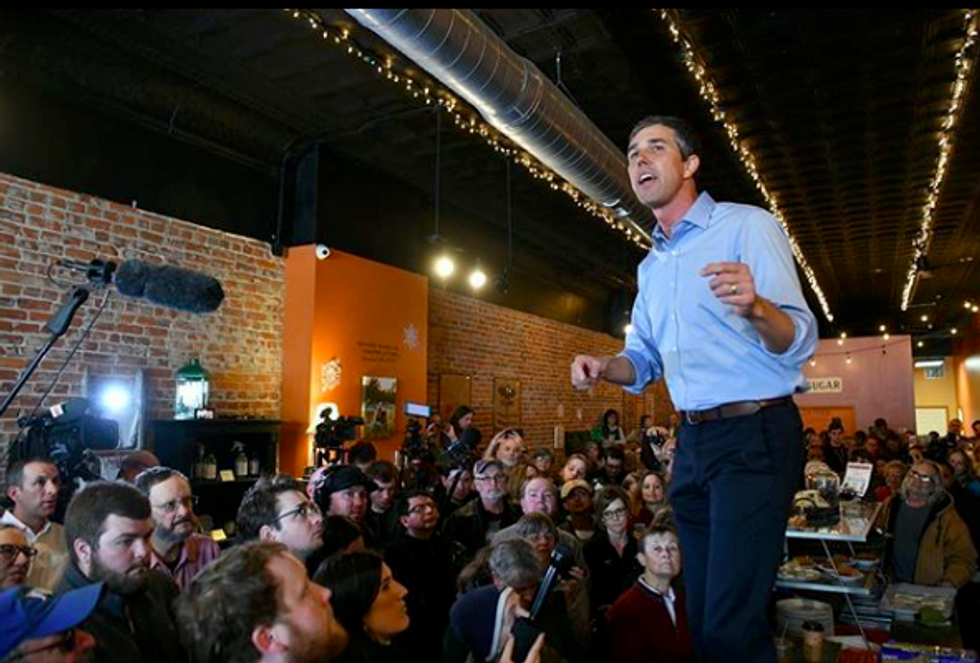When Beto O'Rourke announced his campaign for the presidency last Thursday, he raised 6.1 million in the first 24 hours, beating out the first day-fundraising of every other Democrat in the packed 2020 field – including Bernie Sanders.
The former three-term congressman from Texas gained notoriety last year after a narrow loss to Ted Cruz in that state's Senate race, one that took on national dimensions due to O'Rourke's unique ability to get out the progressive Texan vote. Since his defeat, O'Rourke has become an unavoidable figure in American politics, racking up over 800,000 instagram followers and earning features in Vanity Fair and The New York Times alike.
Despite the enormous coverage surrounding his youthful charm and charisma, O'Rourke's policy agenda, even his political direction, remains unclear. His presidential campaign website offers no platform or mission, and his short record as a congressman is mixed.
In his five years representing Texas's 16th district, O'Rourke pushed to reform the U.S. Customs and Border Protection agency and liberalize marijuana laws. On the House Armed Services Committee, he sought to expand health care services to veterans.
And then there were the less popular moves. In 2014, for example, O'Rourke criticized the Obama administration's work on immigration reform. That same year, he joined a small group of House members in opposing U.S. funding for Israel's Iron Dome at a particularly tense moment in Israel-Palestine relations.
If there is anything to be said for O'Rourke's political background, it's that he's not always the progressive game-changer the media points him out to be. His policies bear the markings of a moderate Democrat passionate about few truly liberal issues. His legislative actions veered more cautious than contentious.
Not only does O'Rourke's lack of an agenda challenge his race, his traditional presidential image within the most diverse field of candidates to ever run could come back to haunt him. Of the 16 Democratic candidates currently running for the nation's highest office, six are women and five belong to minority groups. Robert Francis O'Rourke is a 46 year-old white man with roots in business. His father was a prominent Texan politician. His father-in-law is a wealthy real estate developer dubbed the "Warren Buffet of real estate." In earlier years, this would have made him a sure bet for the presidency. Today, the guidelines aren't so clear.
Although his privilege as a rich white man may not be reflected in his politics, O'Rourke certainly cannot be considered a radical liberal voice among candidates who build platforms around universal basic income and the like. Plus, there's O'Rourke's strange relationship with big oil.
According to campaign finance data from the Center for Responsive Politics, O'Rourke received over 430 thousand from oil and gas companies during his 2018 Senate campaign, earning the second highest amount of money from fossil fuel companies last year. Which politician earned the top spot? You guessed it, Ted Cruz.
So what's so special about Beto O'Rourke anyway? At best, he's a promising young Democrat with an optimistic view for America's future. At worst, he's a candidate with blurry policies and little legislative achievements. However you choose to view O'Rourke, the fate of his reputation will be sealed with his success, or lack of it, in the 2020 presidential election.












